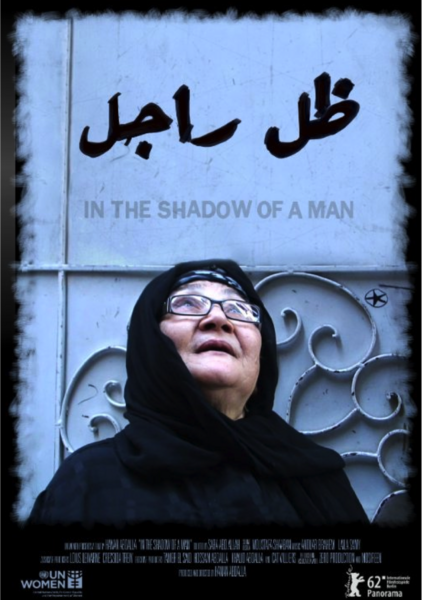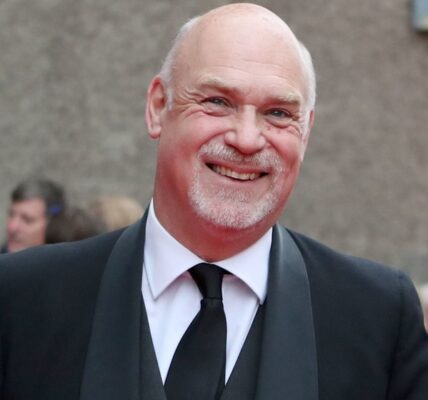Director Hanan Abdalla Talks In the Shadow of a Man
Premièring during this year’s Birds Eye View Film Festival, In the Shadow of a Man is a fascinating documentary which explores the realities of life as a women in Egypt in the wake of the revolution, and which won debut filmmaker Hanan Abdalla the award for Best Documentary Director at the 2012 Doha Tribeca Film Festival.
The film is supported by the Doha Film Institute—indeed, since the launch of DFI’s Grants programme in 2010, 42 per cent of all grant recipients have been female directors—who are also a cultural partner of this year’s festival.
“We are seeing more and more women in the MENA region who wish to tell their stories through film and bring our voices to global audiences,” says DFI CEO Abdualaziz Al-Khater. “ DFI has been a supporter and a facilitator of this work through our production, film financing, education and training programmes. Through the QATAR-UK campaign, DFI is proud to support this year’s festival and the importance of fostering collaboration and an on-going cultural dialogue between our two countries.”
Speaking exclusive to movieScope for our Women in Film issue, Hanan reveals the challenges she faced in bringing such untold stories to the screen. And make sure to keep reading for your chance to win a pair of tickets to the Birds Eye View Film Festival screening of In the Shadow of a Man.

In the Shadow of a Man director Hanan Abdalla
How did you get your start as a filmmaker?
After I graduated from university, where I studied politics and philosophy, I pursued short courses in documentary filmmaking, editing, and cinematography to help give me a platform to start making films. When the Egyptian Revolution erupted on January 25 2011, I was actually halfway through a documentary filmmaking course at the Documentary Filmmakers Group (DFG) in London. I left the course and flew out, both to participate and to follow events and stories with my camera. Initially the plan was to stay for a few weeks and to go back to London and figure things out from there. A week before I was meant to leave, I heard about an opening for a small project commissioned by UN Women. They wanted a 15-minute documentary made about women’s participation and their needs in the aftermath of the revolution. They had asked for a ‘highly qualified filmmaker’, which I wasn’t by any means, but I decided to take the leap and apply for the job. I really have to thank UN Women for taking the risk and allowing me to take on this project; what I learnt from making In the Shadow of a Man has changed my life and my career.
Have you had any support or training in your career?
As well as being halfway through the course at the DFG before I flew out to Egypt during the Revolution, I also completed short courses in editing at the Frontline Club and Cinematography at Raindance. While I shot, produced and directed my first film there was a huge support network around me; these included many friends and family who were either directors or producers and production companies like Zero Production and the revolutionary media collective Mosireen, providing a huge amount of practical and creative support.
What particular challenges did you face while making In the Shadow of a Man?
The main challenge I faced was approaching the subject matter of women’s needs in the aftermath of the revolution. At first I was deeply uncomfortable; I felt that I would be following a fetish that much of the Western media had become obsessed with. There were more important stories to tell, I thought. Luckily, thanks to many conversations with friends and family, I persevered despite my concerns. I came to realise that the problem wasn’t with the subject matter, but with the question itself.
I started by wanting to ask Wafaa, Badreya, Shahinda and Suzanne [the women in the documentary] theoretical questions about what freedom meant for women; if society had limited their choices and, if so what their solutions were. Instead, I moved—or in actual fact they moved me—to a much more intimate place where they started to tell me their stories; the very personal subtleties of the frustrations, the longings, the triumphs, and the inconsistencies of being a woman in Egypt.
What particular challenges do creative women face in your home country?
The challenges that women face in the film industry in Egypt are similar to the challenges faced by women in many other countries in this male-dominated industry. The major difference is that Egypt is more socially conservative, which leads to other issues regarding the ability of women to enter the field in the first place. The working hours of the film industry tend to be a big challenge, due to the fact that filming schedules are liable to finish very late which can cause conflicts within the family set up about how late the girl is returning home; what people will say about her, if it will impact her eligibility for getting married, etc, along with other social taboos masquerading as Egyptian ‘tradition’ and ‘culture’. Women are also often deterred by being severely underpaid or excluded if they manage to get in.
To read about Hanan’s motivations and hopes for her documentary, and to win a pair of tickets to the Birds Eye View Film Festival screening of the film on Friday April 5, click here.










